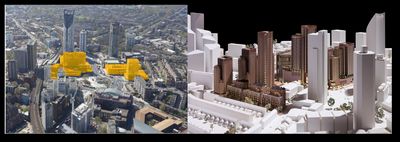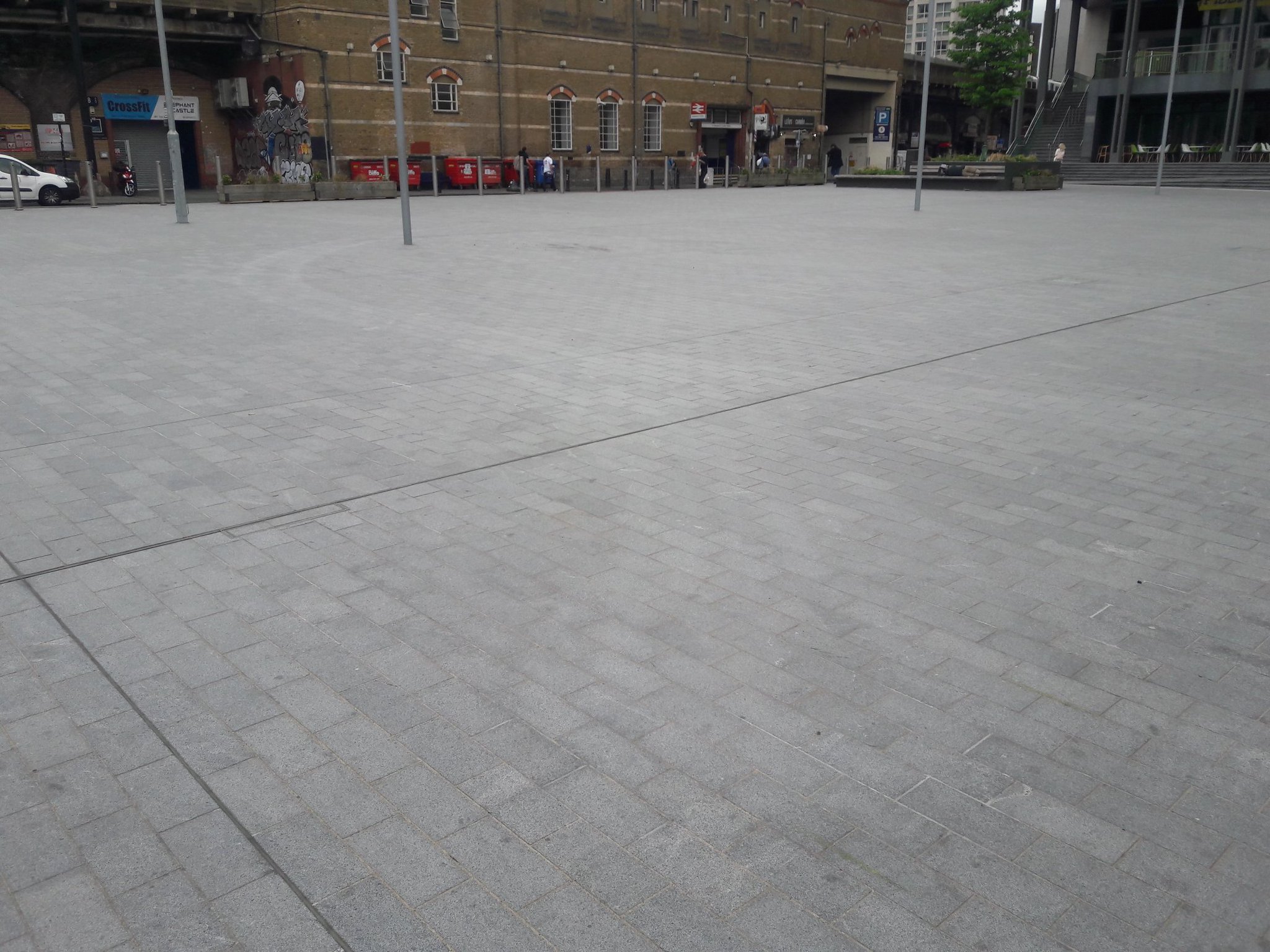
In the face of a judicial review of their planning approval for the shopping centre demolition and redevelopment (now scheduled for 17 and 18 July), centre owners and developer Delancey showed a touching concern for the welfare of the traders, making noises about how the 'timeline for starting on site will be pushed back', affecting the traders' hopes for 'stability and certainty'.
Delancey has not previously been in any hurry to settle the centre's future, other than entirely on its own terms. This is amply demonstrated by the snail's pace progress of their planning application. It is a story of constant deferment, caused by Delancey's refusal to meet the minimum requirements of the Council's own local plan.
Delancey are culpable in 3 areas - the affordable retail offer, the relocation of the traders and the affordable housing offer.
No affordable retail
The application was lodged on the 28 October 2016 but did not include any affordable retail units, contrary to Southwark's 10% requirement. Instead Delancey submitted a Retail Assessment which said 'The Proposals do not include 10% affordable retail for the reasons outlined later. This would be unviable and inappropriate given the intention to create a strong retail/leisure anchor at the heart of the town centre' (4.63).
By Dec 2017 the affordable retail offer had inched up to the equivalent of 5.3% (para 88), including an in-lieu payment. The application was scheduled for a planning meeting on 18 Dec 2017, when Delancey, no doubt fearing a refusal, despite a recommendation to approve (para 1) asked for a deferral 'to allow time for further negotiations in relation to the affordable retail proposal' (para 2) . A fully policy compliant offer was not made until Jan 2018 - 15 months after the application was first made.
No relocation strategy
The relocation of shopping centre traders was even further down the list of Delancey's priorities. A draft strategy, put together without any input from traders, appeared in August 2017, nearly a year after the planning application. The strategy did not include anywhere for the traders to move to during the building of the new development. This would have to wait another 5 months, until February 2018, when the Castle Square temporary facility for traders was proposed.The planning application for this wholly inadequate temporary space was made in June 2018, with approval in January 2019.
No social rented housing
Alongside this, similar delays plagued the affordable housing offer, which Delancey only slowly and reluctantly improved because of fierce campaigning opposition. It took Delancey over 2 years (Oct 2016 - Dec 2018) to progress from their initial offer to the final, approved proposal, while still falling short of the social rented housing requirement.
There was a complete absence of social rented housing, or quantities for any kind of affordable housing in the initial offer. Delancey would only say that 35% affordable housing would be between 15% and 80% market rent, with a 'blended percentage' of 57% (Para 6.3). This turned out to include a only a meagre 33 'social rent equivalents', out of 979 total units. This went up to 74 units in February 2018, with 95 London Living Rent units and 161 affordable rent at 80% market rent. Five months later, in June 2018, the social rent was increased to 116 units, (with the promise that they would be 'proper' social rent), but the London Living Rent was reduced to 53 units to compensate, with 161 units remaining at 80% market rent (income thresholds of £80,000-£90,000 pa). This was too much for Mayor Sadiq Kahn who insisted on a top threshold of £60,000 pa.
Three deferrals
Delancey's foot-dragging caused the application to be deferred three times (18 Dec 2017, 16 Jan 2018, 30 Jan 2018), while the planning committee, under intense pressure from campaigners, wrestled improvements into Delancey's scheme, until final approval on 3 July 2018.
This entailed 4 versions of an expanding officer's report, which recapped the reasons for each successive delay and recounted the improvements wrenched from a reluctant Delancey. Each version recommended approval, on the basis that the deal offered, including affordable retail, trader relocation and the 'maximum reasonable amount of affordable housing' was the best that could be got, only for the next version to demonstrate that this was not the case.
Castle Square
The delays did not end with the planning committee approval. Planning approval was also needed for the Castle Square temporary facility, as a condition of the shopping centre development approval. While the proposal was made in February 2018, Delancey came forward with this application at the end of June and it went to committee on 7 Jan 2019. The final decision notice for the shopping centre application was then published on 10 Jan 2019, nearly a full year on and there hasn't been any progress since then.
 Castle Square showing no sign of works commencing on the temporary boxpark
Castle Square showing no sign of works commencing on the temporary boxpark
Where the fault lies...
It might be argued that through this whole tortuous saga that Delancey 'listening' and responding to the community's concerns. An alternative explanation is that it is a well-rehearsed developer tactic- offer as little as you can get away with, and then make only those improvements you are forced to concede. Delaying the delivery of the hard-one 116 social rented units for at least 9 years employs the same delaying tactic.
To sum up, we have little doubt that had Delancey presented the improved scheme that it presented to the planning committee on 3 July 2019 at the very first scheduled planning committee meeting, back on 18 December 2017, it would have been approved and any legal challenge long resolved. Delancey could then have saved the crocodile tears it is currently shedding on behalf of the traders.